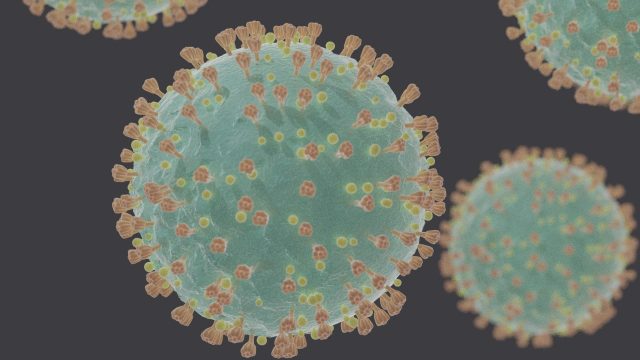
Medicine Cabinet
By Teodoro B. Padilla

On Nov. 26, the World Health Organization (WHO) designated the SARS-CoV-2 variant B.1.1.529 a variant of concern, named Omicron. The WHO’s decision was based on currently available evidence showing that Omicron has several mutations that may make it spread more easily. This latest variant was first reported to the WHO from South Africa on Nov. 24.
All viruses evolve over time. Each time a virus replicates, it sometimes develops small changes called mutations. A virus with one or more new mutations is referred to as a variant of the original virus.
“When a virus is widely circulating in a population and causing many infections, the likelihood of the virus mutating increases. The more opportunities a virus has to spread, the more it replicates — and the more opportunities it has to undergo changes,” the WHO explains.
Preliminary evidence suggests there may be an increased risk of coronavirus disease 2019 (COVID-19) reinfection with Omicron, as compared to other variants of concern, but information is limited.
Researchers in South Africa and around the world are conducting studies to better understand many aspects of the variant and will continue to share the findings of these studies as they become available, according to the WHO.
Among the things that are being studied are its transmissibility or how fast it spreads from person to person as well as whether or not Omicron causes more severe disease compared to other variants. It is important to note though that all variants can cause severe disease or death. At the moment, the WHO stressed that current vaccines remain effective against severe disease and death.
“We will see in the next couple of weeks just how bad (or not) Omicron is. In the meantime, we prepare — strengthen our borders, wear our masks, vaccinate as many people as we can. All of these will still work, and efficacy isn’t expected to go all the way down to zero. Layers work,” wrote infectious disease specialist Dr. Edsel Maurice T. Salvaña, director of the Institute of Molecular Biology and Biotechnology of the University of the Philippines National Institutes of Health, and a member of the Department of Health (DoH) Technical Advisory Group, in a Facebook post.
As the number of COVID-19 cases in the country continues to go down, the government is taking proactive steps to keep the Omicron variant out and preserve the gains of the country’s pandemic response.
Resolution No. 151, issued on Nov. 28 by the Inter-Agency Task Force for the Management of Emerging Infectious Diseases, directs the Bureau of Quarantine and local government units to identify and locate passengers who arrived within 14 days prior to Nov. 29 from countries classified as “red.”
Countries currently included in the “red list” are Austria, Belgium, Botswana, Czech Republic, Eswatini, Hungary, Italy, Lesotho, Mozambique, Namibia, the Netherlands, South Africa, Switzerland, and Zimbabwe. Passengers from these countries are required to complete home quarantine for 14 days from date of arrival and undergo RT-PCR if symptoms develop.
Amid the emergence of the Omicron variant, the WHO stressed that current vaccines remain critical to reducing severe disease and death, including against the dominant circulating variant, Delta.
Hospital reports submitted to DoH Data Collect from March 1 to Nov. 14 showed that 85% of the admissions due to COVID-19 were individuals who are not fully vaccinated. Moreover, reports gathered by DoH showed that deaths and serious cases of COVID-19 are more likely among unvaccinated patients, with over 93.4% of them dying from the disease.
The Pharmaceutical and Healthcare Association of the Philippines (PHAP) joins the DoH in urging the general public to live out the spirit of bayanihan and participate in the “Bayanihan Bakunahan: Ligtas. Lakas. Buong Pinas” campaign, a massive vaccination drive that aims to increase vaccine coverage to protect our people from COVID-19.
Teodoro B. Padilla is the executive director of Pharmaceutical and Healthcare Association of the Philippines (PHAP), which represents the biopharmaceutical medicines and vaccines industry in the country. Its members are at the forefront of research and development efforts for COVID-19 and other diseases that affect Filipinos.